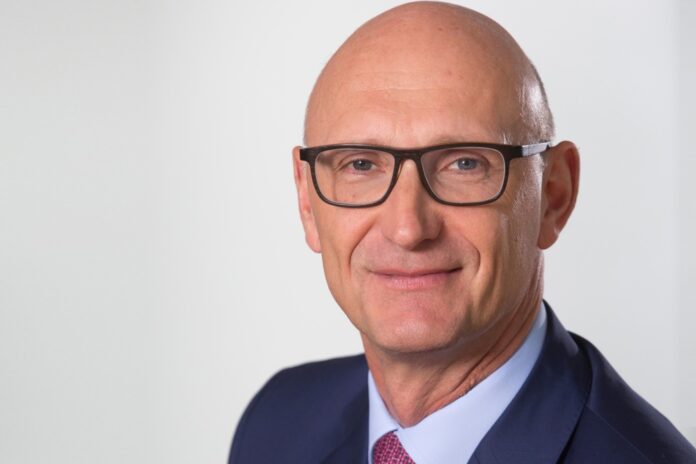T-Mobile gives DT a surprise earnings package
Deutsche Telekom (DT) has exceeded expectations with its second quarterly core profits, CEO Tim Höettges (pictured) declared on Thursday. Outstanding performance by its US division T-Mobile and the growth of its European business mean it could surpass its annual growth target for the year.
Adjusted earnings before interest, tax, depreciation and amortisation after leases (EBITDA AL) soared to €9.9 billion euros ($10.19 billion), beating the analyst consensus once again. A poll of analysts consulted by the German telco gave an average prediction of €9.84 billion. The analysts did correctly guess second-quarter revenues, which they predicted would rise by 5.9% to €28.2 billion. DT now expects to post adjusted EBITDA AL of around €37 billion in 2022, up from the previous outlook of €36.6 billion.
DT has been trying its cut its €136 billion debts by selling its tower business. Goldman Sachs was appointed as adviser in the sale of its 40,600 masts in a process that started in March with private equity bidders vying for control of the masts unit branded as Deutsche Funkturm (DFMG). Vodafone’s towers business Vantage Towers, as well as American Tower had reportedly considered bids earlier in the auction process.
In July Spain’s Cellnex withdrew an offer for a stake in Deutsche Telekom’s (DT’s) towers business, leaving the field clear for New York based private equity fund KKR to almost secure the estimated €18 billion ($18.02 billion) deal, only for it to falter over terms. Later DT agreed to sell 51% of its towers business to a consortium of Canada’s Brookfield and US private-equity firm DigitalBridge, valuing the unit at €17.5 billion. The latter deal gave DT more control over the tower assets. DT reported 54.6 million mobile customers in Germany and 46.5 million in the rest of Europe.
The infrastructure sale would fund more repurchasing of stock in its own highly profitable T-Mobile unit in the US. In April DT bought additional shares in T-Mobile from Japanese conglomerate SoftBank for $2.4 billion, raising its stake in the U.S. company to 48.4%, edging it closer to its desired status of ‘majority stakeholder’.
T-Mobile accounts for three-fifths of group revenue. It has been gaining subscribers following its merger with Sprint and as it rolls out its 5G service. In the latest quarter, T-Mobile added 1.7 million customers who pay their bills monthly, increasing its customer base to 110 million.
Meanwhile TeleGeography’s GlobalComms reports that T-Mobile US has agreed to buy 600MHz mobile frequency licences from two companies controlled by Columbia Capital covering approximately one-third of the US population for a total of $3.5 billion. The licences are already in use by T-Mobile’s 5G network through exclusive leasing arrangements.
T-Mobile disclosed the purchase agreements to the US Securities and Exchange Commission on 8 August 2022, wherein it agreed to pay $1.9 billion to Channel 51 License Co and $1.6 billion to LB License Co. Deal closure is expected in 12 months. The 600MHz spectrum licences range from 10MHz to 30MHz per market and cover parts of major cities including San Francisco, Atlanta, Chicago, Los Angeles, Boston, Tampa, Columbus, Minneapolis, Seattle, Philadelphia, Baltimore, Washington DC, Dallas, Phoenix, Houston, Salt Lake City, Saint Louis and New Orleans.
TeleGeography’s GlobalComms Database notes that 600MHz spectrum underpins the T-Mobile ‘Extended Range 5G’ service currently covering 95% of the US population. T-Mobile was the biggest spender in the 600MHz nationwide auction completed in February 2017, paying $8.0 billion for 1,525 regional licences, ahead of DISH Network which bid $6.2 billion for 486 licences. Channel 51 paid $859 million for eight licences at the auction, while in December 2017 LB License bought AT&T’s entire 600MHz allocation (after AT&T had bid $910 million for 23 licences).


